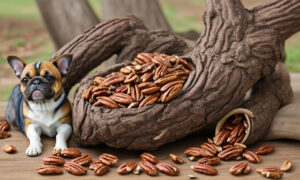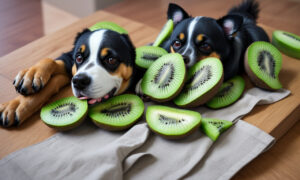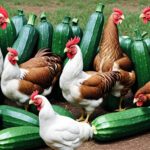As a pet parent, you might often find yourself scrutinizing the ingredients list on dog food packages, doing your best to provide a balanced and nutritious diet for your furry companion. Vegetables, those nutrient-packed marvels of nature, can be a healthy addition to a dog’s diet, but figuring out which veggies are safe for canine consumption can be a puzzling task. As you’re attempting to enhance your dog’s diet with vitamins, fiber, and minerals straight from the earth’s bounty, diving into the world of dog-friendly vegetables is a step toward boosting your pup’s health and happiness.
In this ultimate guide, we’ll unearth the myriad of vegetables that are not only safe for dogs to eat but also beneficial for their wellness. You’ll get the lowdown on dog-friendly vegetables, learn about the nutritional values they hold, and understand how to introduce these greens (and purples, reds, and yellows!) into your dog’s diet effectively. Let’s dig in and discover the veggie treats that are paw-fect for your pooch.
Health Benefits of Vegetables in a Dog’s Diet
Before we delve into the specifics of which vegetables dogs can eat, it’s important to recognize the health benefits they offer. Vegetables are chock-full of essential nutrients such as vitamins A, C, and K, antioxidants, fiber, and various minerals. They can contribute to:
- Boosting the immune system: Antioxidants combat free radicals, aiding in keeping your dog’s immune system strong.
- Improving digestion: High-fiber vegetables can help regulate your canine’s bowel movements.
- Aiding in weight management: Low-calorie veggies make for great treats, especially for dogs on a weight-control plan.
- Promoting a healthy skin and coat: Some vegetables contain fatty acids and vitamins that contribute to a shiny coat and healthy skin.
- Reducing the risk of chronic diseases: Nutrients found in vegetables can help lower the risk of certain chronic diseases like diabetes and cancer.
Related Article: Can Dogs Eat Cabbage
Safe and Nutritious: Vegetables Your Dog Can Enjoy
It’s time to unveil the array of veggies that are not only safe but beneficial for your beloved canine. When introducing any new food, always do so in moderation and observe how your dog reacts. Here are some top picks for dog-friendly vegetables:
Carrots
- High in vitamins like A and beta-carotene
- Great for dental health due to their crunchy texture
- Can be served raw, cooked, or frozen
Sweet Potatoes
- A superb source of dietary fiber
- Packed with vitamin B6, C, and beta-carotene
- Serve cooked and skinless
Green Beans
- Low in calories and high in iron
- Contain a good amount of protein for a vegetable
- Can be raw, steamed, or canned (with no added salt)
Pumpkin
- Excellent for digestion, thanks to its fiber content
- Loaded with vitamin A and zinc
- Always opt for pure, canned pumpkin or cook fresh pumpkin at home
Cucumbers
- Contain vitamins K, C, and B1
- Hydrating and low-calorie, making them a refreshing snack
- Serve them raw and in small portions
Broccoli
- Rich in vitamin C and soluble fiber
- Contains bioactive compounds that support health
- Should be given in very small quantities due to potential gastric irritation
Integrating these vegetables into your dog’s diet can be a vibrant way to add nutrition and variety. However, ensure that these veggies are prepared properly and devoid of any seasonings or oils that can pose a health risk to your pooch.
Vegetables to Approach with Caution
While many vegetables are safe for dogs, there are some that should be served with caution or avoided altogether. Understanding which vegetables fall into this category is crucial for maintaining your dog’s health and well-being:
Onions and Garlic
- Contain compounds that can lead to hemolytic anemia
- Toxic in raw, cooked, or powdered form
- Keep these well out of reach of your canine companion
Mushrooms
- Some varieties are toxic to dogs
- It can be difficult to distinguish between safe and unsafe types
- Best to avoid unless absolutely certain of their safety
Tomatoes
- Solanine in the green parts of the plant can be harmful
- Ripe tomatoes are generally considered safe in small quantities
- Keep your dog away from tomato plants in the garden
Corn
- Generally safe but not particularly nutritious for dogs
- Corn cobs can be a choking hazard and cause intestinal blockages
- It’s safest to avoid giving corn cobs to your dog
Proceed with caution when it comes to these veggies and always consult with a veterinarian if you’re uncertain about what’s safe for your pet.
How to Safely Introduce Vegetables Into Your Dog’s Diet
As you consider adding vegetables to your dog’s meals or using them as healthy snacks, it’s vital to start slow and follow best practices to avoid any digestive upset:
- Start with small amounts: Introduce new vegetables in tiny portion sizes to monitor any adverse reactions.
- Cook vegetables properly: Some vegetables are more digestible when cooked. Steaming is a great method to retain nutrients while making them easier to eat.
- Puree or chop them up: Small pieces or pureed veggies are easier for dogs to digest and reduce the risk of choking.
- Consider your dog’s size and health conditions: Adjust portions according to your dog’s size and dietary restrictions.
- Regularly talk to your vet: Always have a conversation with your veterinarian before drastically changing your dog’s diet.
Pairing vegetables with a high-quality commercial dog food ensures that your dog is getting a complete and balanced diet. Remember, while veggies are a great supplement, they should not be the sole component of your dog’s dietary intake.







